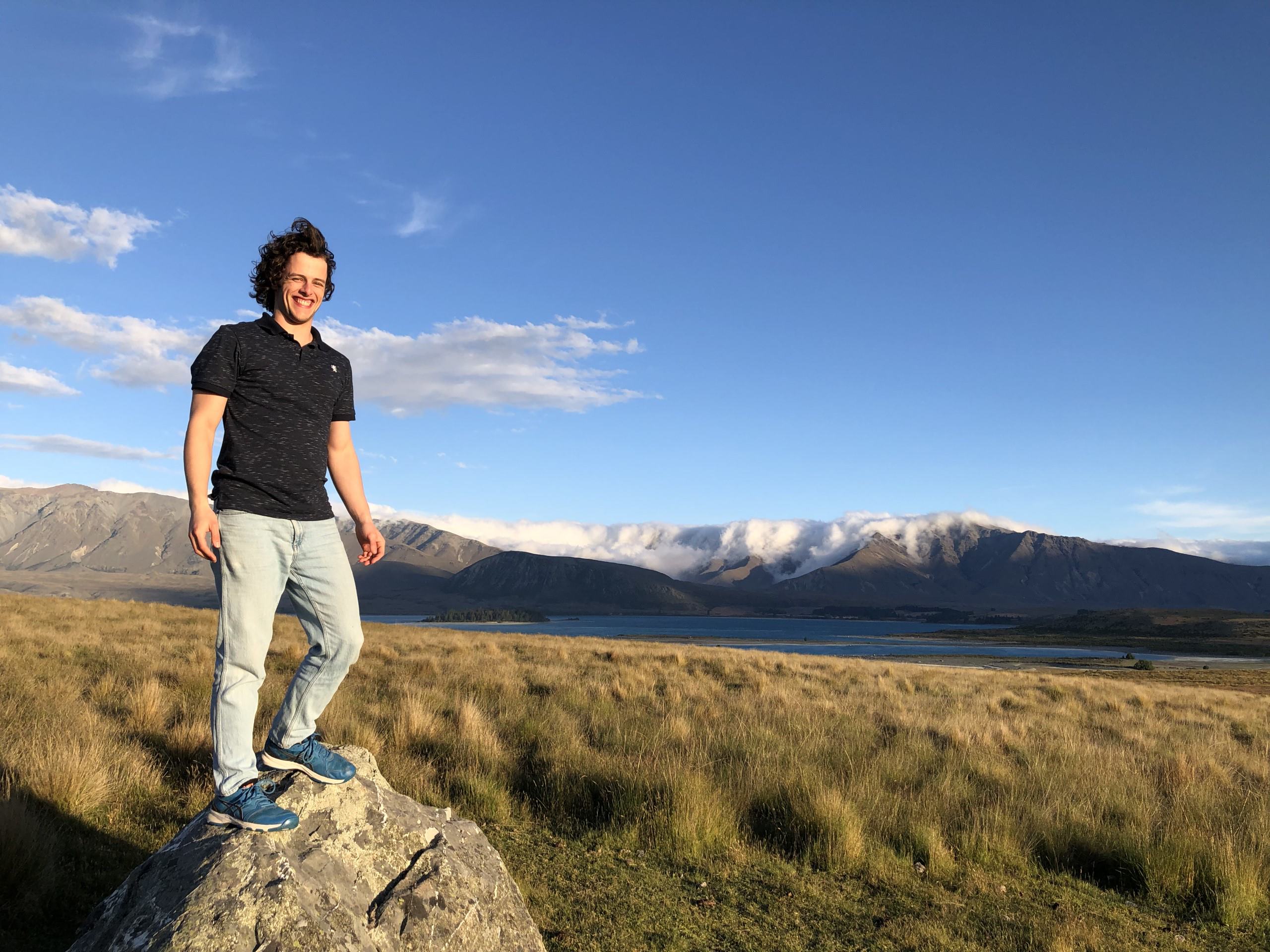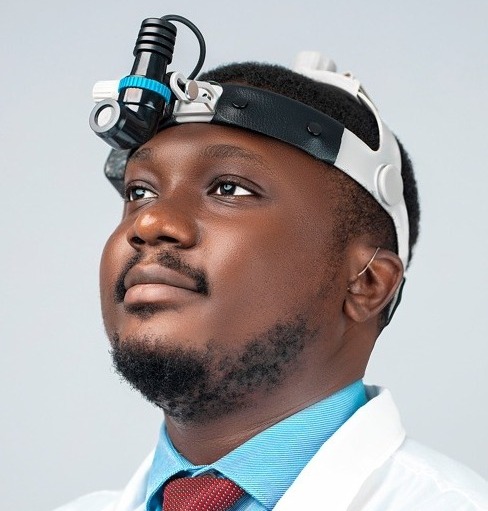
Novel ‘Siren Plays Zeperno’ tells the story of a deaf gamer
August 6, 2019
How would my life be different if I didn’t have hearing loss?
August 8, 2019Community Spotlight: Deaf comedian pursues passion with standup

Tom Willard is a deaf comedian looking to break down barriers and make others laugh through his standup.
Willard’s performances are unique and memorable as he uses sign language as he speaks. He tells us more about his life as a deaf comedian and how he is working to bridge the gap between hearing and deaf communities.
Q&A with deaf Comedian Tom Willard
HLM: When did you become interested in standup?
Willard: In the mid-1990s, I visited the sets of TV shows “Seinfeld” and “Roseanne” in Los Angeles. It all seemed so real to me, like “actual people are doing these things.” Both Jerry Seinfeld and Roseanne Barr used standup comedy to become big stars. I thought if I went into standup myself, “Why not me?” When I raised this idea 15 years ago with my son, then 11, he said, “Never in a million years.” He’s probably right, but the jury is still out.
I attempted to take a standup class in 2004. When I asked for an interpreter, the teacher said, “I don’t do that.” I was not as assertive about my rights back then as I am now, so I slunk away in defeat. It was another 12 years before I finally did standup for the first time. It’s a good example of what happens when able-bodied people squash disabled people when we try to do things.
“I was not as assertive about my rights back then as I am now, so I slunk away in defeat.”
Eventually, I made my standup debut July 6, 2016, at the Funniest Person in Rochester contest. I always told myself if I started doing standup I would never stop, and so here I am three years later, still going strong. I’m pleased with my progress, having won a few contests and performed at some top comedy clubs — 50 venues altogether in a dozen cities, and I’m doing a show in New York this month that will be an audition for several opportunities.
Standup comedy interests me because I’ve always liked to make people laugh. When I was in fifth grade I used to do a daily cartoon for my classmates. I think I use humor the same way I’ve used photography when I was growing up, as a way to stay relevant with the hearing folks and overcome the deaf obstacle. I can’t hear what people say but I can make them laugh, so that’s pretty cool. And we all need more laughs nowadays, right? (Wait, I just checked the markets and we’re currently at exactly the right level of laughs. Wow, that almost never happens.)
“I can’t hear what people say but I can make them laugh, so that’s pretty cool.”
HLM: What challenges do you face when doing stand up and how do you overcome them?
Willard: Being deaf, of course, is the biggest challenge. For example, I’m unable to schmooze with the hearing comedians, which is where a lot of opportunities come from. So, that’s a big obstacle. But it is what it is, and sometimes I get opportunities BECAUSE of the deaf thing, so it might balance out.
I never really understand the shows I perform in. I’ve been in the same open mics with the same comedians for three years and I still have no idea what they’re talking about up there. But I’m not there to watch the show, I’m there to get on stage and perform.
When I do have interpreters a lot gets lost in translation and it doesn’t guarantee deaf people will come out. There’s a big difference between hearing and deaf humor. Nowadays I am more about live captioning than interpreting, but that is a rare accommodation despite the high-tech world we live in.
“There’s a big difference between hearing and deaf humor.”
The other big challenge is that I started out so late in life, three years ago at age 58. I felt bad about that for a while but then I saw a video of a guy who was 93 and still doing standup. It made me realize that I could be in the early stages of a 35-year career if my health holds out. None of us knows what our fate will be, but you might as well plan to be around, right?
A third challenge is that like a lot of people with disabilities, I struggle in life financially and it can be hard to come up with the extra funds for comedy. I’d love to be in comedy festivals, but they all charge a fee to enter and those fees can quickly add up. And then if you get in, you have to travel to some other city on your own dime. That’s just how it works, you’re trying to get your name out there before people are ready to hire you, so the expense is all on you. But Jerry Seinfeld has amassed almost a billion dollars from saying funny things, so there’s obviously money to be made in comedy.
Read more: D.J. Demers: “I never wanted to be the hearing aid guy”
HLM: What do you hope to accomplish through your standup?
Willard: Well, I’d like to make a living from it. I see professional comics traveling to various cities and doing a few shows on the weekend and that’s how they earn their living. I’d like to do something like that. That’s what older people like to do anyway — travel and talk. I would like to get to the point where people would want to come out and see me, but I am a long way from that point. I’m not delusional, I’m just in the game. Success in comedy is like getting struck by lightning. No wait, that would hurt. It’s like winning the lottery. Yeah, that works. And I’m just buying lottery tickets.
For many years, I was in journalism, reporting on what other deaf people were doing. Finally I decided I wanted to be one of those people who were doing things, too. I want to be out there in the real world doing bigger things, and I want to show the whole world what deaf people can do.
“…I want to show the whole world what deaf people can do.”
Some people have said I am “inspiring.” This is not something I set out to do, but if I can motivate people to pursue their dreams in spite of such obstacles as age or disability, then that would be pretty cool. This would be a good point to mention that my son Kevin, 26, who can hear, started doing standup himself nine months ago and is getting good at it. He watched me for two years and then took the plunge himself. I might not go anywhere in comedy, but I think he has a pretty good chance himself if he keeps at it.
HLM: What advice would you give other deaf people who are interested in comedy?
Willard: Go away, I don’t need the competition. That’s just a joke. Kind of. But a producer for America’s Got Talent told me I wasn’t accepted this year because they “already had their disabled comedian.” That’s just how the world works.
But if you’re deaf and you want to do comedy, I say go for it. I’ll repeat what my standup teacher said: “People will want to like you, but you still have to be funny.”
I’ve only heard of about half a dozen people with hearing loss doing standup in the hearing world. Most of them talk and don’t sign. It’s tough if you sign and don’t talk, you need to develop relationships with interpreters who will voice your act. Will they do it out of the kindness of their hearts or will they expect payment, even though you’re new and no one is paying you yet? Will they travel with you to out-of-town gigs? Or do you just use whatever interpreter is available at your destination? It’s really tough. That’s why most deaf comics limit their entertaining to within the deaf world. It’s just easier and makes more sense.
“I’ve only heard of about half a dozen people with hearing loss doing standup in the hearing world. Most of them talk and don’t sign.”
HLM: What do you think about accessibility in standup comedy?
Willard: It’s a tough one, really. I made a ton of enemies my first year in standup by trying to get interpreters at open mics. Interpreters cost money. I was routinely told that if I insisted on interpreters, the venue would just shut down the mic. It never happened, but I became known as “the guy who gets mics shut down.” That’s an example of disability harassment. “Your involvement will be the death of everything.”
I was successful at getting an interpreter at only one venue, once a month. To my surprise, deaf people did not come out, despite publicity. I came to realize that a lot of standup is lost in translation to ASL. Deaf people also sometimes aren’t interested in “hearing people comedy.” They have their own comics whom they enjoy in their own language. So now I’m all about getting live captioning, but it’s an uphill battle. I never seek access when I’m performing in a show. I only try if I’m just there as an audience member, but it’s such a hassle, I hardly ever try. Otherwise, I can stay home instead and watch standup on TV with captioning. It does make it harder to succeed in my profession, though, as I’m not out there with everyone else. “Out of sight, out of mind.”
Learn more about deaf comedian Tom Willard on his website!




